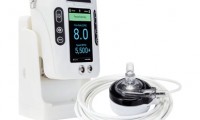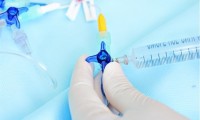-
China Biopharm Launches Phase III Clinical Study of Semaglutide Injection
- Source: drugdu
- 89
- January 21, 2024
-
In booming obesity field, Novo Nordisk is ‘just getting going,’ CEO says
- Source: drugdu
- 180
- January 13, 2024
-
Livanova to close loss-making circulatory support business
- Source: drugdu
- 91
- January 12, 2024
-
FDA Fast Tracks SELLAS Life Sciences’ CDK9 Inhibitor for Acute Myeloid Leukemia
- Source: drugdu
- 161
- January 12, 2024
-
Shanghai Argo Announces Multi-Program RNAi Licenses and Strategic Collaborations with Novartis
- Source: drugdu
- 86
- January 10, 2024
-
Cryoablation induces systemic metabolic changes in patients with paroxysmal atrial fibrillation
- Source: drugdu
- 99
- January 8, 2024
-
Optimizing patient care with the best risk scores
- Source: drugdu
- 91
- January 8, 2024
-
Nexletol partners Esperion and Daiichi Sankyo patch up milestone dispute with $125M settlement
- Source: drugdu
- 84
- January 5, 2024
-
Novartis Returns to Voyager Therapeutics to Reach New Gene Therapy Destinations
- Source: drugdu
- 201
- January 4, 2024
your submission has already been received.
OK
Subscribe
Please enter a valid Email address!
Submit
The most relevant industry news & insight will be sent to you every two weeks.













